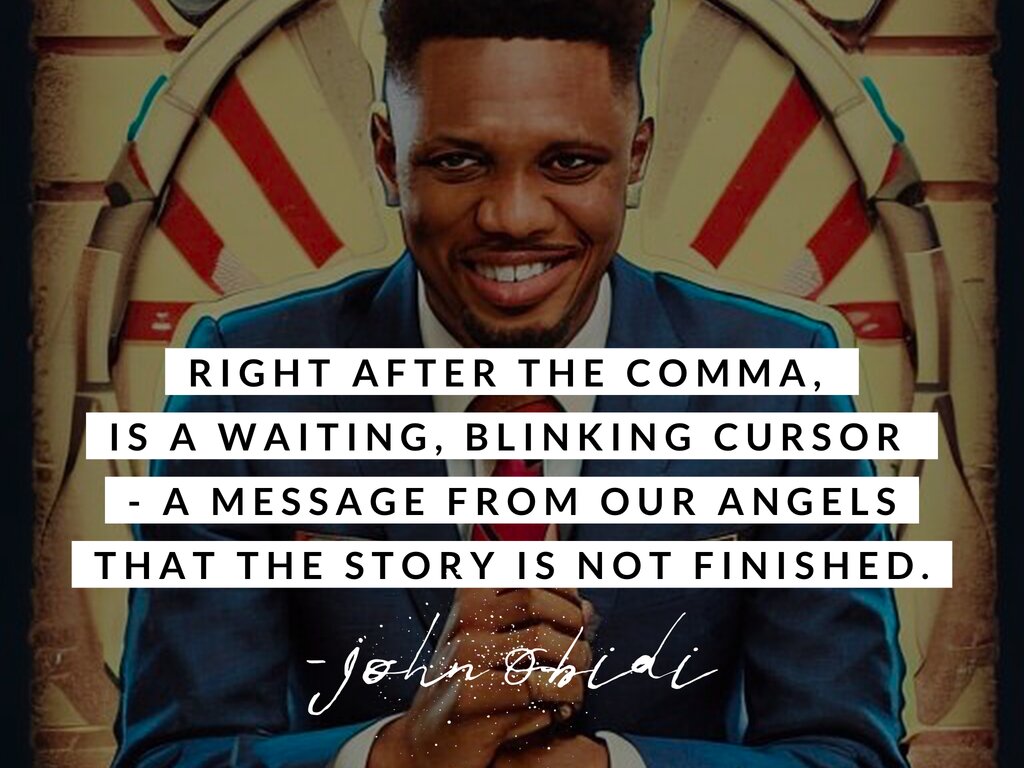The Wisdom Letters w/ John Obidi
Wisdom for Navigating the Modern World.
Weekly thought-provoking letters sent straight to your inbox
Join over 50,000 readers on my list.
Commas and Beethoven's Suicide Letter
Ludwig van Beethoven was a genius, widely regarded as one of the most significant and influential composers in the history of Western classical music.
He was a master composer who could hear the music in his head and bring it to life through his piano and pen.
He was admired by many, a true celebrity of his time, but few truly understood the personal struggles he faced every day.
The most significant of those struggles was his hearing loss, which was gradually worsening and threatened to destroy his life's work.
For a while, he hid this infirmity well, until he couldn't.
He felt embarrassed and feared that if people knew that he was now deaf, he would lose status as people would doubt his ability to create music.
Note - His deafness did not actually affect his musical abilities as his genius towered above being able to hear his own music, but he felt the public would not understand that.
And so, one day, whilst retreating in the small town of Heiligenstadt, just outside of Vienna, he began writing what was to be his suicide note.

Beethoven's Letter - The Heligenstadt Testament, in its original German language
In that heartfelt letter, addressed to his brothers, Beethoven described his struggles with his increasing deafness, calling it a "misfortune" and a "fate worse than death."
As he expresses his thoughts of suicide, he also explains to his brothers why he was often misunderstood.
He writes,
"Oh you men who think or say that I am malevolent, stubborn, or misanthropic, how greatly do you wrong me. You do not know the secret cause which makes me seem that way to you.
For six years now I have been hopelessly afflicted, made worse by senseless physicians, from year to year deceived with hopes of improvement, finally compelled to face the prospect of a lasting malady (whose cure will take years or perhaps be impossible).
If at times I tried to forget all this, oh how harshly was I flung back by the doubly sad experience of my bad hearing.
Yet it was impossible for me to say to people, "Speak louder, shout, for I am deaf."
Ah, how could I possibly admit an infirmity in the one sense which ought to be more perfect in me than in others, a sense which I once possessed in the highest perfection, a perfection such as few in my profession enjoy or ever have enjoyed.
Oh, I cannot do it, therefore forgive me when you see me draw back when I would have gladly mingled with you."
He explains on…
"... what a humiliation for me when someone standing next to me heard a flute in the distance, and I heard nothing, or someone heard a shepherd singing, and again I heard nothing. Such incidents drove me almost to despair. A little more of that and I would have ended my life—it was only my art that held me back."
He then writes a sort of will bequeathing his estate to his brothers and forgiving them of all misgivings.
"At the same time, I declare you two to be the heirs to my small fortune (if so it can be called); divide it fairly; bear with and help each other.
What injury you have done me, you know was long ago forgiven."
However, in the days following his letter, a miracle happened.
Personally, I think it may be connected to how he ended his final letter.
"Oh Providence—grant me at last but one day of pure joy—it is so long since real joy echoed in my heart. Oh when—Oh when, Oh Divine One—shall I feel it again in the temple of nature and of mankind—Never?—No—Oh that would be too hard."
Between this and the ensuing days, he spent meditating upon his own suicide note, something changed inside him.
It is not clear what that was, but he decided to set the note aside and continue writing music in spite of his condition.
The rest is history as he went on to compose the most influential musical pieces in the history of music.
His music is regarded as legendary, but this letter, known as the Heiligenstadt Testament, has been interpreted as a symbol of hope, perseverance, and the power of the human spirit to overcome adversity.
The letter inspired numerous works of art, including films, plays, and musical compositions.
It became a source of inspiration and comfort for generations of artists and creative individuals.
Moreover, it serves as a reminder that even the most talented individuals can experience pain, suffering, and self-doubt, and that it is possible to find a way forward through self-reflection and perseverance.
Beethoven wrote his suicide note at the age of 28 but eventually lived on to 56, changing the world in the process.
What does this mean for you?
What usually looks like the end is seldom ever the end.
What appears to be a full stop (.) at the end of the line is typically just a comma (,)
Do what you must - take a break, seek therapy, journal your thoughts, meditate, pray, retreat for a while… whatever is necessary for you.
But realize that as the story of our lives is being written, commas can happen to the best of us.
The difference is that when we eventually look back up at the Google Doc of our lives, we find that right after the comma, is a waiting, blinking cursor - a message from our guardian angels that the story is not finished.

So keep writing.
Never Miss a Single Letter!
Join over 50,000 readers on my list.
Copyright © 2023 John Obidi








